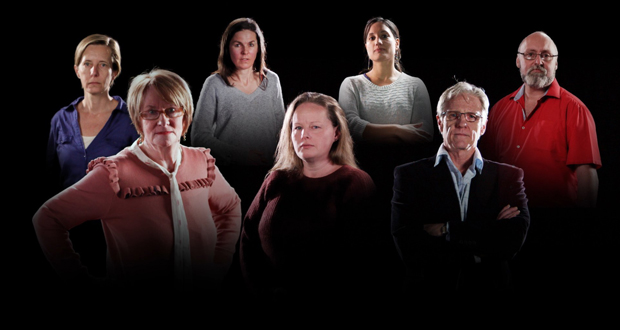Four Corners fallout: what some of aged care’s strongest voices make of the program

In the past, major ABC TV reports have had a lot of influence on the Australian public and on policy – for better or worse.
Four Corners, for example, prides itself on its history of sparking debate and triggering inquiries, while a recent study found that in the eight months after Catalyst called into question the effectiveness of statins, an estimated 60,000 people stopped or reduced their intake of the cholesterol-lowering drug, some potentially putting their lives at risk.
So, what will come of the ABC’s most recent major investigation into the aged care sector?
Four Corners on Monday aired the first instalment of its two-part series into the treatment of the elderly in aged care homes. Already, some in the sector have posited that its impending airing prompted Prime Minister Scott Morrison’s decision to call for a Royal Commission into aged care.
The sector was quick to condemn the gaps in care the program’s whistle-blowers aired.
Aged & Community Services Australia chief executive Pat Sparrow said the stories of individual suffering were unacceptable. “As an industry we share the dismay felt by the community when older Australians and their families are hurt by neglect or poor care,” Sparrow said.
That point was echoed by Minister for Senior Australians and Aged Care Ken Wyatt, who said he was “appalled by the lack of care” shown for older adults.
He said in a statement: “[The stories] have highlighted the importance of the reform agenda we are implementing to increase the regulatory oversight of Australia’s aged care sector.
“We have to prepare ourselves for the Royal Commission to uncover some pretty bruising information about the way our loved ones have been mistreated.”
While COTA Australia chief executive Ian Yates said the examples of poor care uncovered in the report are not new, he added: “What is most disturbing is that every case highlighted on Four Corners last night was a breach of existing aged care standards, and some were a breach of professional clinical standards, but apparently none were the subject of formal complaints – and all that is totally unacceptable in modern Australia.”
Yates added that the sector needs workers who want to be there, care about the residents, have proper training and support, and are backed by proper clinical management.
He called on every aged care worker with examples of abuse and neglect to report such cases to the Australian Aged Care Quality Agency on 1800 978 666, adding this can be done anonymously.
Nurses react
The Australian Nursing and Midwifery Federation commended those who spoke out in the program and added its members have long raised concerns about practices uncovered, such as restriction of continence pads and inadequate food.
“Every day that we wait for the Federal Government to act on staffing shortages, is yet another day that the most vulnerable members of our society are forced to suffer – without proper care, without proper food, without compassion and without dignity,” federal secretary Annie Butler said.
The union renewed calls for a safe staffing law. “Despite the very best efforts of many dedicated aged nurses and care workers, without minimum staffing ratios it just isn’t possible for them to deliver the care that elderly residents need,” Butler said. “There is no law, no minimum standard or any form of evidence based model for safe staffing in aged care.”
An opponent of minimum staffing ratios, aged care peak body Leading Age Services Australia (LASA) said staffing is a critical issue determined by a range of factors, including the needs of the residents, the models of care applied to meet these needs, the design of the facility, and, in some locations like rural and remote regions, the availability of staff.
“We need to work towards ensuring providers have the right number of staff, with the right mix of skills, to meet the different needs of every resident in their care,” LASA said in a statement.
“That must apply to every different type of residential aged care facility – across low care, high care, specialist dementia care, etc. – where staffing needs will differ.”
More than a Royal Commission
Whether or not Morrison got the ball rolling for the Royal Commission because of the Four Corners’ investigation, multiple stakeholders and representatives suggested it will play an important role in addressing the concerns raised by the voices in the story.
They also seem to be in agreement about the fact that the issues need to be addressed before it wraps up.
Leading Age Services Australia said while the Royal Commission is underway, “we must press on with addressing key workforce and funding issues, and not lose sight of making the system better right now”.
Yates said it must be specifically resourced to ensure it can answer the question of how much funding is needed to provide high quality care for older Australians. “This will then allow Australia to have a clear conversation about how best to fund the gap.”
Email: [email protected]






until staffing ratios are fixed poor outcomes will remain this is a national disgrace aged care act never addressed staffing levels this is federal money and some aged care providers are making profit whilst giving sub standard care in acute hospitals ratios exist child care centres but nursing homes nil staffing ratios exist